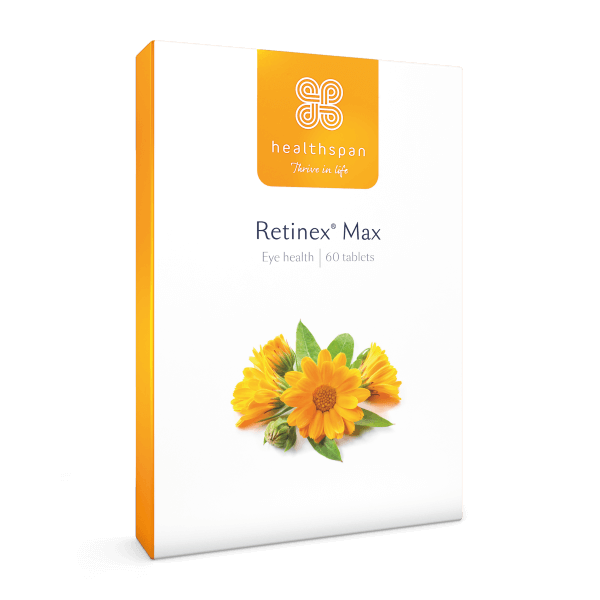Cataracts and AMD can affect vision, making daily life difficult, but lutein can help.
🕒 2 min read
Lutein is a yellow, carotenoid pigment that is vital for healthy eyes. It can't be made in the body and is obtained from eating yellow, orange or green fruit and vegetables. Kale, spinach and sweetcorn are good sources. It is also found in egg yolk, where the fats present also boost absorption of any vegetable lutein eaten at the same time.
How does it work?
Lutein is concentrated in a part of the retina called the macula, which is responsible for the fine vision needed for reading and recognising faces. Some lutein is also converted into another carotenoid – zeaxanthin – and together they act like 'nature's sunglasses' to filter out damaging blue light.
As powerful antioxidants, they also mop up the free radicals produced by light-detecting chemicals in the eye, to help protect long-term vision.
What can lutein help?
Age-related macular degeneration (AMD)
Lack of dietary lutein is associated with age-related macular degeneration, but taking lutein supplements can significantly increase the amount of macular pigment present in the retina within just a few weeks. It also increases macular pigment density in people with established AMD, showing that a diseased macula can still benefit.
Cataracts
These form when the (normally clear) proteins of the eye's lens turn cloudy, like egg white. This can be triggered by many factors, including exposure to ultraviolet light. Analysis of eight studies, involving more than 12,000 people, found that those with good blood levels of lutein and zeaxanthin were between 27 and 37 per cent less likely to develop cataracts than those with low levels.
Screen strain
People who use a computer screen regularly can also benefit from taking lutein supplements to protect against the blue light these screens emit. In 37 healthy volunteers, aged 22 to 30 years, those taking lutein supplements for 12 weeks showed improved visual function, with significantly improved contrast sensitivity and a trend towards increased visual acuity.
Dementia
Lutein is the main carotenoid found in the brain and exciting research suggests it may protect brain cells from the degenerative effects associated with Alzheimer's disease. The research shows that people with Alzheimer's disease have lower levels of lutein than those without, and those with more severe dementia have lower levels than those with mild dementia.

Retinex Max
'Nature's sunglasses' containing lutein and zeaxanthin
- Contains 20mg lutein and 2,000mcg zeaxanthin
- Powerful carotenoids found in high concentrations in the eye
- Supports long-term eye health
Available forms: capsules, tablets
Perfect partners: bilberry extract, omega-3 fish oil, B vitamins
Dosage: 10mg lutein per day
Watchpoints: no significant interactions






